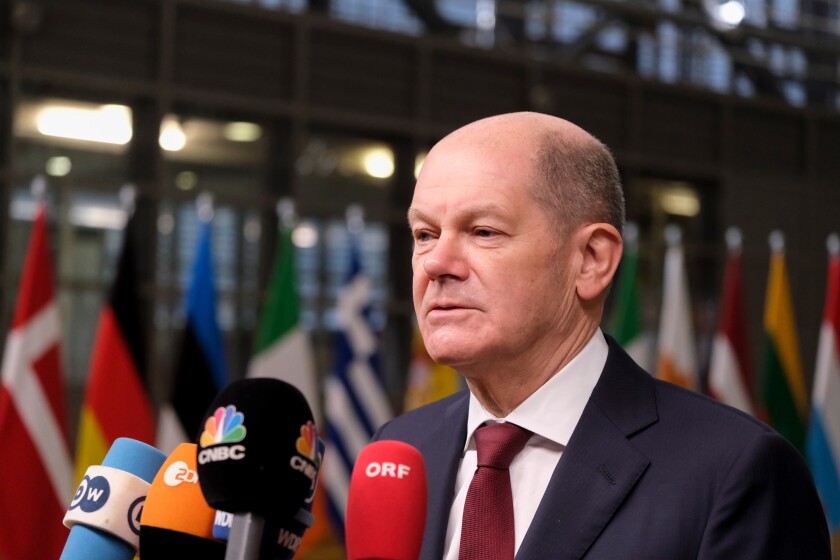Thirty-one years after the inauguration of the European Bank for Reconstruction and Development, could the crisis triggered by the Russia-Ukraine war strengthen unity among European beneficiaries of the development bank and its shareholders? Or will it act as a wedge to open up new divides?
The immediate reaction to the invasion pointed to a rallying around the European flag. The European Commission has adopted five rounds of sanctions against Russia and key figures in the regime of Vladimir Putin and opened its coffers to provide €1.2bn in financial and humanitarian aid.
MEPs in the European Parliament have called for more EU defence, reduced energy dependence on Russia and solidarity with Ukraine, released billions of euros to EU countries sheltering people fleeing the conflict and called for further sanctions against Russia.
The leaders of Estonia, Hungary, Latvia, Lithuania and Poland have called for a special EU membership process for Ukraine. Meanwhile, a survey by pollsters YouGov in March showed there was net support for Ukraine joining the EU among the public in the four largest member states — Germany, France, Italy and Spain.
However here the unanimity breaks down. France’s newly-elected president Emmanuel Macron has said it is not possible to open an accession procedure with a country at war.
Holland’s Mark Rutte has said western European nations do not believe an accelerated admission process is possible while Olaf Scholz, Germany’s chancellor, suggested the EU was not ready for enlargement as its decision-making was still based on unanimity.
As one investment strategist puts it: “As long as the veto system is in place, the EU continues to run the risk of being bogged down in lengthy negotiations among its 27 member states.”
The EU’s proposed sixth round of sanctions aimed at stopping crude oil imports in six months and refined products by the end of 2022 has hit opposition from Hungary and other member states that import oil via a pipeline. However, the EU is confident that the concerns are over logistics and finance rather than principle and so will be overcome through negotiation.
But perhaps the nuanced views among Europe’s governments and citizenry were highlighted by another finding in the YouGov survey. A majority of people in the three core EU countries — Germany, France, and Italy — are opposed to EBRD member Serbia’s path towards EU entry. The former Yugoslav republic has been asking to join the EU since December 2009.
